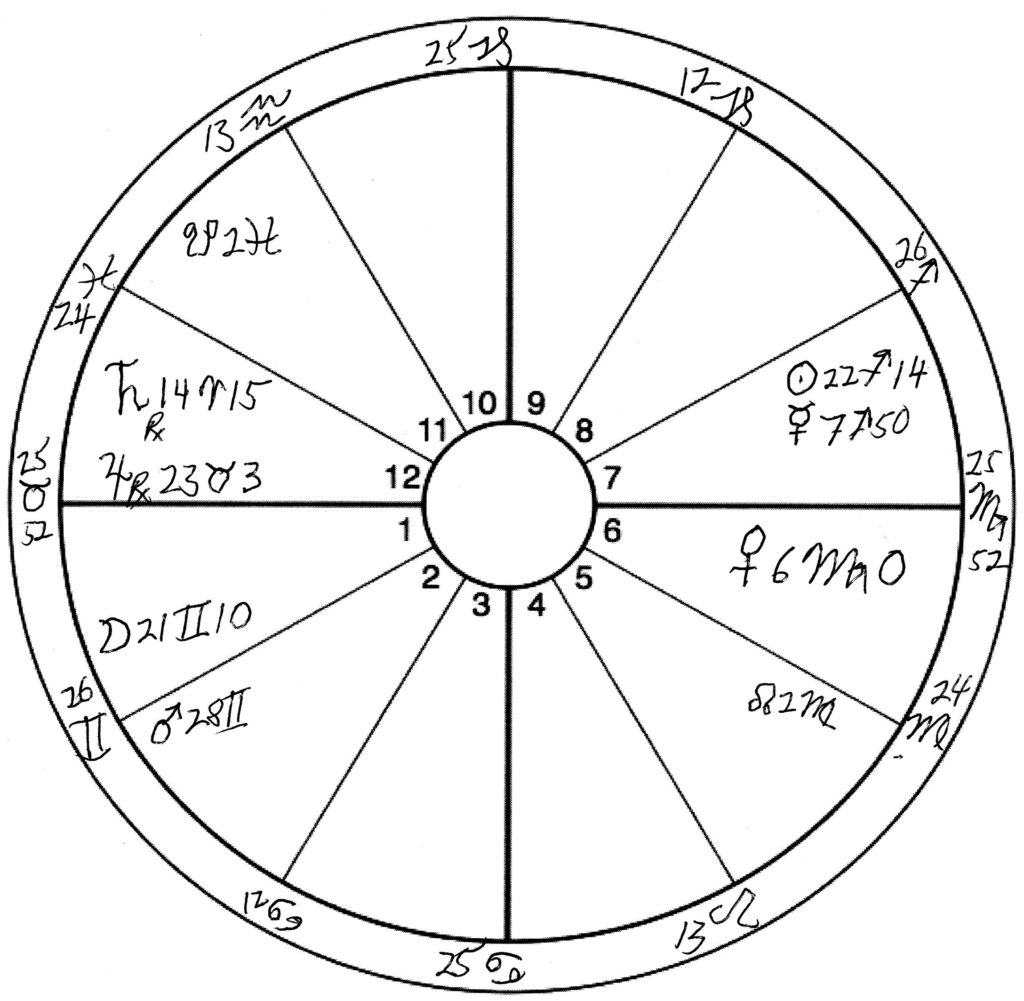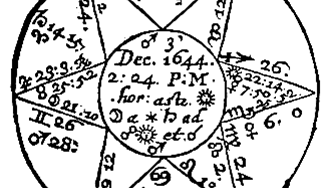Horary is the branch of astrology that deals with answering specific questions. If you do practice horary, there are different methods historically of choosing what planet represents the subject of the question being asked. That planet is called the significator.
If you follow William Lilly, the significator is the ruler of the house which matches the topic of the question- so, for instance, a question about money or possessions would be given to the 2nd house and its lord.
This approach doesn’t necessarily pay much attention to the chart as a whole, and the Ascendant and its lord has no necessary connection to the question.
Another approach would be to look at the natural significator of the topic – so for instance, in a question about a person’s mother you might consider either Venus or the Moon along with the appropriate house.
There is yet another approach that takes the Ascendant and its Lord to indicate the subject of the question regardless of topic. (Ben Dykes points out that this approach is used in Al-Kindi’s influential textbook on horary, Forty Chapters.) Since the chart represents the question then the whole chart, focusing especially on the ascendant, is the focus of the question.
I want to look at an example of a chart from William Lilly’s Christian Astrology, where Lilly read the chart one way, but you could read the chart using other approaches and find the same result. It is a lovely example of multiple markers pointing to the same answer.
 Note that I drew this chart by hand to give the planet positions and house cusps at exactly the same location Lilly used. If you run this chart with modern astrology software there is often some discrepancy in planet and house locations.
Note that I drew this chart by hand to give the planet positions and house cusps at exactly the same location Lilly used. If you run this chart with modern astrology software there is often some discrepancy in planet and house locations.
Now remember, the question being asked is, By what manner of death Canterbury shall die? That is the frame of reference we are using to approach the chart. Canterbury here is the Archbishop of Canterbury, head of the Church of England. At the time Lilly cast the chart the Archbishop was fallen from power and in prison. The question was not, Will he die, but how.
“It may appear to all indifferent minded men [indifferent here meaning impartial, unbiased], the verity & worth of Astrologie by this Question, for there is not any amongst the wisest of men in this world could better have represented the person and condition of this old man his present state and condition, and the manner of his death, then this present figure of heaven doth.”
As Lilly points out, this is a question about a church leader, so we should look to the 9th house and its lord. The 9th house is ruled by Saturn, who is in Fall in the 12th in the intercepted sign Aries. The 12th house is associated with imprisonment by your enemies and by loss of power and status. A planet in fall is in disgrace, cast out of power, fallen, getting no respect – in fact, in some traditional texts Fall is described as being in prison. The symbolism is pretty much perfect.
He also mentions that Jupiter is a general Significator of churchmen and doth somewhat also represent his condition. More on that a bit later in this post.
Lilly’s analysis focuses on the Moon here. According to Lilly, the Moon is lord of the 4th house (of endings), and the 4th house is the derived 8th house from the 9th house of the question – the house of a church related death. The Moon is applying to an opposition to the Sun which is on the cusp of the 8th house of death, and the Sun in turn is applying to an opposition with Mars. Mars is important here as he is the dispositor or ruler of Saturn who is in Aries, the sign of Mars – so Mars here is the person who controls the archbishop.
“Mars being in an Airy Signe and humane, from hence I judged that he should not be hanged, but suffere a more noble kind of death… He was beheaded.”
So, Lilly had judged a humane form of death since Mars was in an air sign, which was humane. Mars would be inclined to give the archbishop a “more noble” kind of death.
However, it occured to me there is another very striking marker for beheading – Saturn itself, in its fall, is in Aries, which signifies the head – very literally his head fell off.
I used this chart as an example of the meaning of Fall in a class I’m teaching on essential dignities at Kepler College. Now, notice that Jupiter is conjunct the Ascendant at 24 Taurus, peregrine and retrograde, also in the 12th house. One of the participants pointed out that Jupiter is conjunct the fixed star Algol. Algol, literally The Ghoul, is a very malefic star associated with the decapitated head of Medusa – so obviously it is strongly associated with beheading.
Also, as Lilly pointed out, Jupiter is natural significator of religion and the church, so the symbolism is apt for that reason also.
It occurred to me, with Jupiter being conjunct the Ascendant, that it is worth our looking at the lord of the Ascendant also. What I found is very interesting.
Taurus is rising, so the lord is Venus, who is in the 6th house, in her detriment. In Lilly’s system of dignities Venus is also peregrine. A debilitated Venus like this could easily represent the Archbishop in prison. Venus is moving towards the descendant which is in opposition to the ascendant and thus associated with ending of life.
Now note this – the only aspect Venus makes is an opposition to Jupiter – and Jupiter is lord of the 8th house of death and of the 12th house of prisons and confinement – death in prison. The lord of the first applying to lord of the 8th is a classic marker for death. With Jupiter retrograde this is a mutual application – the two planets are approaching each other – which indicates an abrupt and usually negative resolution of the matter.
(Getting a little more technical, in the opposition from Jupiter to Venus there is no reception from Jupiter – Jupiter has no dignity where Venus is – and that is a further marker for the opposition being negative in effect. Venus receives Jupiter into her house, and some traditional texts state that Lord of the first receiving Lord of the 8th is a sure marker for death, since Lord 8 is welcomed in and can do what he will.)
Jupiter, Lord of the 8th house of death, is also conjunct the Ascendant itself – yet another marker for death.
And, just to make it a little more precise, Jupiter is in Taurus which is associated with the neck – death by having his neck cut. Jupiter, even debilitated, is a benefic, which could be associated with the relatively humane form of death.
Jupiter here as representing both the church, and a killing planet, has another very literal and apt meaning. Canterbury was killed by the Presbyterian church reformers in England who felt that Canterbury’s form of the Church of England needed to be destroyed. Jupiter here really is both the church and the killing planet – Canterbury was literally killed by the Church.
In each of these instances the symbolism is striking and apt. We saw the same meaning whether we used the Lord of the 9th house (Saturn) or the natural ruler of the church (Jupiter) or the lord of the Ascendant (Venus).
So, in horary, you can use a topical house ruler, or you can use the ascendant and its ruler, or you can look at the planet which is the natural significator of the topic. Which should you consider? In this chart the answer is, Yes.


Fascinating. I would like to hear more about dispositors and their use. Any good reference on that subject?
>> Fascinating. I would like to hear more about dispositors and their use. Any good reference on that subject?
Hm… Dignity with dispositors and rulership are emphasized a lot in traditional texts. If you really want to see them in action I would consider working your way through the second volume of William Lilly’s ‘Christian Astrology’, which has something like 35 fully worked out examples. He is a marvelous teacher.